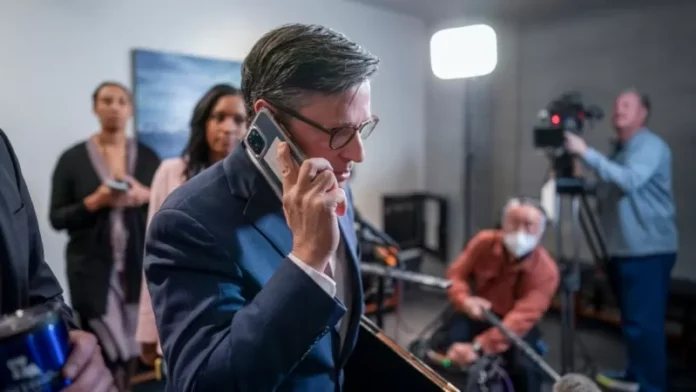The United States has once again reaffirmed its unwavering support for Taiwan, despite objections from China. The State Department has dismissed Chinese criticism of Taiwan President Lai Ching-te’s stopovers in Hawaii and Guam during his Pacific tour, stating that these transits are routine and consistent with long-standing bipartisan U.S. policy.
Republican House Speaker Mike Johnson and former Democratic Speaker Nancy Pelosi have both spoken separately with President Lai, emphasizing the United States’ steadfast support for Taiwan. This comes as China continues to assert its opposition to any official interaction between the U.S. and Taiwan, which it considers a renegade province.
The call between Speaker Johnson and President Lai on Wednesday marked the first direct conversation between the two since Lai assumed office in May. Johnson had previously congratulated Lai upon his election in January and renewed the United States’ commitment to the security and democracy of its Indo-Pacific partners.
President Lai’s Pacific tour, which began on November 30, included stops in Hawaii, the Marshall Islands, Tuvalu, and Palau. This marks Lai’s first overseas trip as president, and his transits through Hawaii and Guam have been met with strong opposition from China.
However, the State Department has made it clear that these transits are in line with long-standing U.S. policy towards Taiwan. A spokesperson stated that every democratically elected Taiwan president has transited through the United States, guided by the Taiwan Relations Act, the three U.S.-China Joint Communiques, and the Six Assurances. These documents, which have been the foundation of Washington’s “One China” policy for 45 years, do not explicitly prohibit a Taiwan president from stopping over in a U.S. city.
Despite China’s objections, President Lai’s transits through Hawaii and Guam are crucial in garnering support from the incoming administration of President-elect Donald Trump. Trump has previously stated that Taiwan should pay for U.S. protection, and Lai’s visit is seen as a way to strengthen ties with the U.S. and contribute to peace and stability in the region.
Trump’s nominee for secretary of state, Republican Senator Marco Rubio, a prominent China hawk, has also shown strong support for Taiwan. He has sponsored legislation advocating for high-level visits by Taiwanese officials to the U.S. and a stronger U.S. policy towards Taiwan in the face of increasing Chinese pressure.
When asked about his stance on Taiwan, Rubio stated that the president sets foreign policy, and the State Department’s job is to execute it. He also expressed confidence in finding solutions to engage with Beijing, despite facing sanctions from China.
However, there are still restrictions in place that prevent a sitting Taiwanese president from visiting Washington for formal meetings. Under long-standing, self-imposed restrictions by the State Department, this is considered highly provocative to Beijing. No sitting Taiwan president, vice president, premier, or ministers of foreign affairs and defense have visited Washington for formal meetings while in office.
Republican Representative Andy Barr, a member of the House Foreign Affairs Committee, believes that these restrictions should be removed. He stated that President Lai should be able to come to the United States, and the U.S. should welcome him. This sentiment is shared by many in Congress, who believe that it is time to remove any impediments to strengthen ties with Taiwan.
It is important to note that the People’s Republic of China, led by the Communist Party, has never governed Taiwan. However, they continue to claim sovereignty over the self-ruled democracy. The United States has acknowledged this claim but has not endorsed it. Instead, the U.S. maintains a “One China” policy that takes no official position on Taiwan’s sovereignty and does not support Taiwan independence.
In conclusion, the United States has once again reaffirmed its strong support for Taiwan, despite objections from China. The State Department has made it clear that transits through the U.S. by Taiwan’s democratically elected leaders are routine and consistent with long-standing bipartisan U.S. policy. As President Lai continues his Pacific tour, it is crucial for the U.S. to show its support for Taiwan and strengthen ties with this important ally in the Indo-Pacific region.

